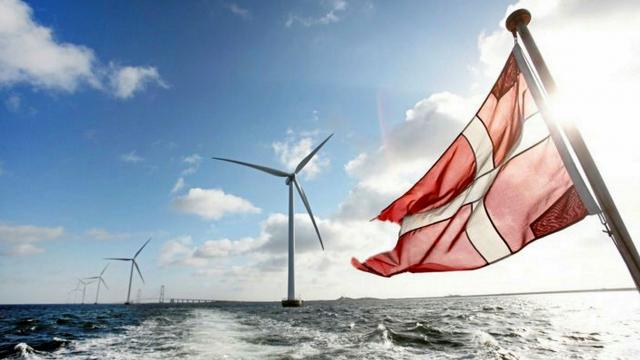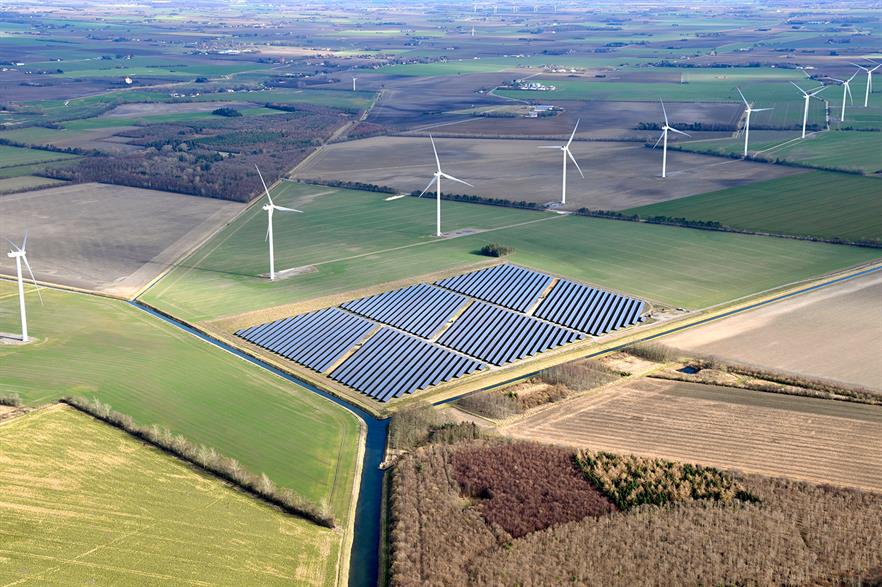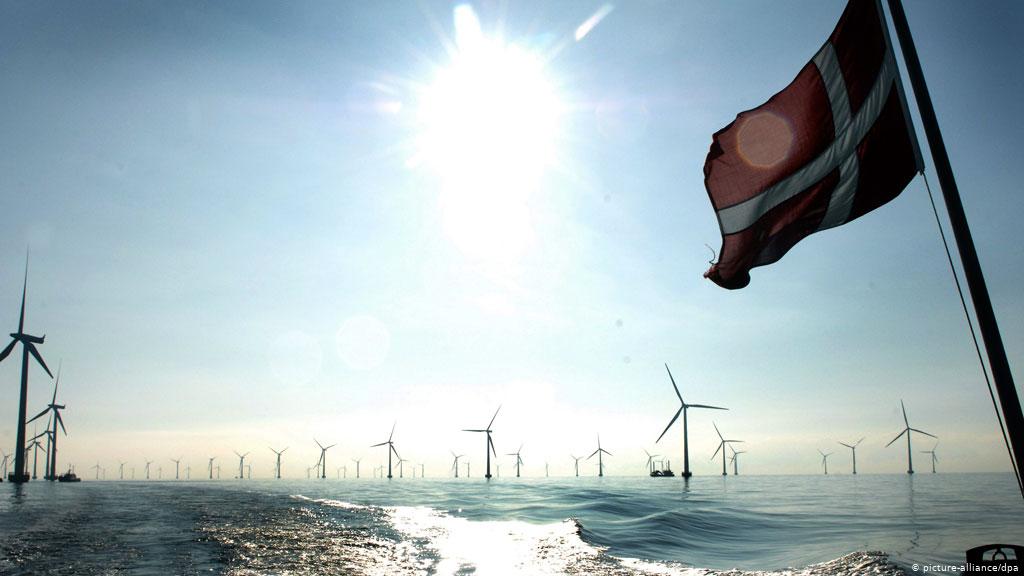
This is the tenth instalment in a series about extending the Green New Deal to confront multiple global crises. Read Part I, Part II, Part III, Part IV, Part V, Part VI, Part VII, Part VIII and Part IX.
Denmark declared in December it would no longer issue new licences for drilling oil in the North Sea. Then, last month, the Nordic nation also announced plans to create a renewable energy island in the same waters – with the planned capacity to produce and store enough power for 3 million households.
Denmark, pop. 5.8 million, is the largest oil producer in the EU and the biggest oil-producing nation worldwide to date pledging to leave its oil in the ground, once ongoing leases are finished producing by 2050. At the same time, Denmark is leading the way beyond the oil era through its long-standing and impressive commitment to renewables and other shifts like encouraging green transport.
International media like the BBC have highlighted that potential lost revenue for Denmark could reach 13 billion kroner, or a little over $2 billion. But this narrative misses the cost of inaction.
A climate disaster will be far worse in the long term than the coronavirus pandemic, unless fossil fuel extraction stops. A UN report issued late last year urged governments to phase out fossil fuel at a rate of 6 percent every year “to avoid catastrophic global warming.”
Moving away from oil is fundamental for a Green New Deal to work on a global scale. And fortunately, as our survival depends on this shift, Denmark is far from the only country ending its dependency on burning hydrocarbons.
The global charge away from fossil fuels – but not led by the U.S.
Costa Rica is another nation that has pledged to stop oil exploration. Last year, its environment and energy minister, Andrea Meza Murillo, co-wrote a communique with her Danish minister counterpart, Dan Jørgensen, calling on other countries to keep oil in the ground. In it, they asserted:
“Our countries are committed to playing an outsized role to leverage our national actions into international momentum to move beyond oil and gas. We look forward to working with all of our friends and allies to close the production gap and build a future we can be proud of.”
By 2021, Ireland, France, Spain, New Zealand, Portugal and Belize, as well as regions in other countries, are announcing a winding down of fossil fuel extraction. The world’s eyes now turn to the United States, the world's largest oil producer based on 2020 figures, where fossil fuel extraction must stop in order to prevent climate catastrophe.
Replacing climate-denying Donald Trump with President Joe Biden is certainly good news for the environment. But Biden cannot simply talk the talk without walking the walk – something the Obama-Biden administration was blamed for doing. For instance, President Obama did not push for enforceable targets within international climate negotiations and had an “all of the above” energy policy that enabled more fracking and the vast amount of emissions that went with it.
In late January, Biden quickly made promising climate moves, including rejoining the Paris Agreement, halting the Keystone XL pipeline, suspending drilling on federal lands and reversing Trump's rollback of climate regulations.
But tellingly, even after these initial announcements, in February the U.S. Environmental Protection Agency still predicted that the country would continue to be an important global producer of oil and gas – with crude oil production remaining at record highs for the next three decades.
A broad movement is pressuring Biden to go further, not least by stopping all the other pipelines from transporting tar sands, such as the Enbridge Line 3 traversing Minnesota, and banning fracking. These struggles continue to be fought through direct action, in the courts, with divestment, in Congress, and at the state and local levels.
The extensive indigenous-led movement against the Keystone pipeline pressured Biden to re-cancel XL, just as the movement had pressured Obama to make that decision. Today’s climate movement, with its keep-it-in-the-ground mantra, grew immeasurably while first struggling against Obama, and more recently against Trump. Now, pressure from the climate generation could be the defining factor of Biden’s presidency.
Returning to Denmark, a movement there forced a fracking ban in 2012; the process has also been banned in countries including France, Costa Rica and Scotland. Ane while banning fracking and committing to ending fossil fuels, Denmark is also creating viable alternatives.
Lessons from Denmark
In 1991, Denmark built the first offshore wind farm, creating 5 Megawatts of power. The latest planned island-wind-installation alone can produce 2,000 times more energy, or about 10GW. Wind and solar energy production has more than doubled in the country in the last decade, creating around half of Denmark's needs. Soon those sources will surpass 60 percent of national output.
While technical innovation is credited with driving the advance of renewables, Danes and their government have shown through collaboration why it takes more than technological know-how to really move things forward.
Activists and engineers created wind cooperatives across Denmark from the 1970s onwards. By 2001, 86 percent of this booming industry was produced in self-managed small organisations. Alongside the bottom-up power structure, the Danish government gave top-down support in the forms of tax breaks, legally ensuring that co-ops the right to sell electricity for a fair price.
Occupy.com explained these features in late 2019, also exploring how the Green New Deal could collaborate through a process of municipalism, whereby people build political (or electrical) power from the base up.
Peer-reviewed science has since substantiated how political decisions, not technical advances, catalysed Denmark's green progress. In Energy Journal, Professor Cynthia Lin Lawell and her co-author, Jonathan Cook, explain how government support in Copenhagen assisted wind farms by helping them upgrade their turbines when they become outdated, which also accelerated Denmark's green growth.
More recently, Denmark's bigger wind companies have expanded. Vestas is now the second largest wind turbine manufacturer in the world, while the state-owned Dong has moved out of oil into renewables. Community and state ownership of green technology continues to play a big role, with large wind farms such as Middelgrunden, near Copenhagen, being part cooperatively owned. The Danish government will own 51 percent of the new renewables island.
Over the last 50 years, Denmark's support for renewables hasn’t always moved in a straight line. The country’s latest government, a red/green coalition, has made climate solutions a top priority and aims to reduce the country’s 1990 carbon levels by 70 percent by 2030 – a police it calls the Fair Direction for Denmark.
The government has produced a Just Transition case study, for example, in which the seaport of Esbjerg, once a base for the oil industry, is transforming into a wind energy hub. At this point, just 4,000 workers are employed in the country’s oil industry – whereas Denmark’s renewables sector already supports more than 33,000 full-time jobs.
Local politics again supports this transition. Copenhagen aims to become the first carbon-neutral city by 2025 through ambitious plans to install more wind turbines and solar panels, expand public transport and increase energy efficiency.
Anyone who has visited Denmark can appreciate not only how much wind energy the country already has, but how friendly it is for walking, cycling and public transit. Copenhagen, it turns out, is far from the only Danish city with big plans for a clean, zero emissions future.
People may suggest Denmark has been able to go so far so fast because it started its renewable energy push a half century ago. But the good news is that others, now, can replicate these social and ecological innovations to keep fossil fuels grounded and out of the atmosphere.














